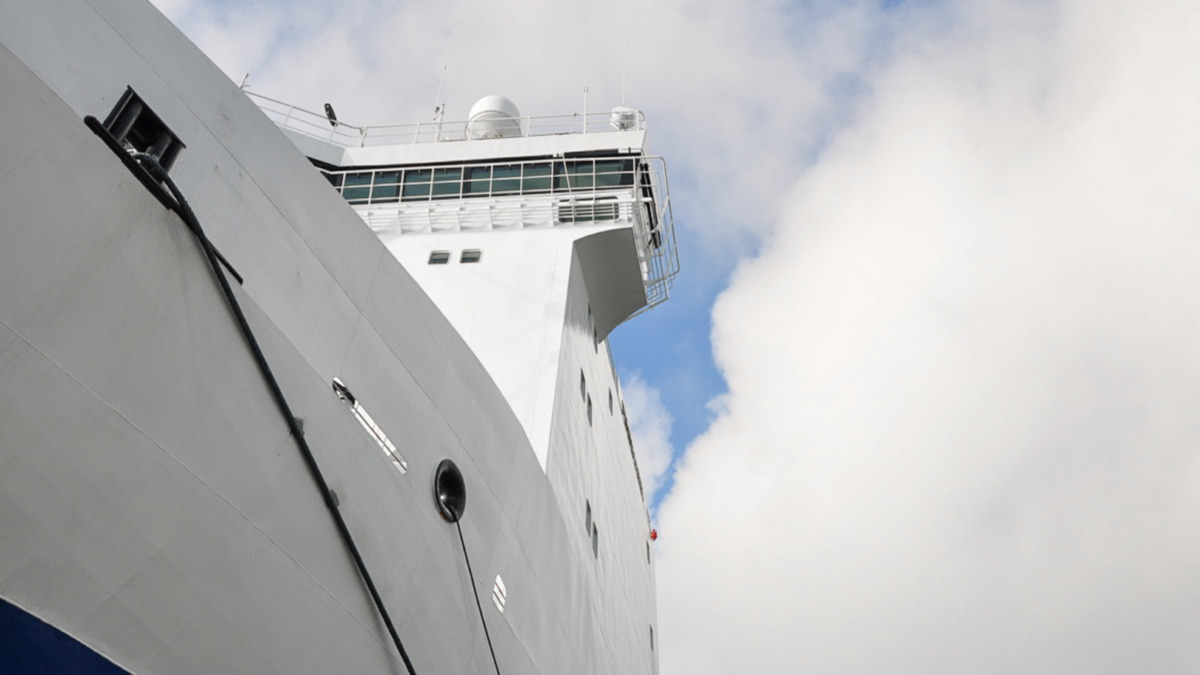Bans on Wastewater Discharges from Cargo Ships in Finnish Territorial Waters Come into Force
In December 2024, the Finnish Parliament banned the discharge of wastewaters from cargo ships into the Baltic Sea in Finnish territorial waters. The bans on ship discharges, promoted by Baltic Sea Action Group (BSAG), come into force gradually from 1 July 2025. First, a ban on discharges of sewage and open-circuit scrubber wastewater will come into force. BSAG calls for a Baltic Sea-wide ban on wastewater discharges from ships.

The Baltic Sea is one of the busiest sea areas in the world. However, the Baltic Sea’s specific characteristics, such as shallowness, low water turnover and enclosed nature, make it vulnerable to eutrophication and pollution. A study published by BSAG in June shows that sewage discharges are polluting the Baltic Sea, underlining the importance of limiting discharges in this fragile ecosystem. Most wastewaters from cargo ships still end up in the sea, although voluntary measures have been promoted, including through international cooperation within Baltic Marine Environment Protection Commission HELCOM, such as the No Special Fee scheme.
“This study, commissioned by the Finnish Transport and Communications Agency Traficom, provided important additional information on the performance deficiencies of cargo ship effluent treatment facilities and supports the national discharge bans adopted at the turn of the year. We will use the findings of the study especially in our work to develop the international MARPOL regulation,” says Mirja Ikonen, leading expert at Traficom.
Discharge bans to come into force gradually
Until now, cargo ships have been allowed to discharge their wastewater into the Baltic Sea with relatively few restrictions. Cargo ships have been allowed to discharge untreated sewage 22 kilometres from the nearest shore and treated sewage up to 5 kilometres from the nearest shore. Treatment on cargo ships removes bacteria from the wastewater but is inefficient in removing nutrients that cause eutrophication of the Baltic Sea. There have been no restrictions on discharges of grey water, such as shower and washing water.
From 1 July 2025, no more sewage or wastewater from open-circuit scrubbers may be discharged into the sea in Finnish territorial waters. Sulphur scrubbers are devices used by ships to reduce sulphur emissions from exhaust gases by injecting water into the exhaust gases. The scrubbing water produced by exhaust gas cleaning contains substances harmful to marine life, such as metals and organic compounds. Closed-loop sulphur scrubbers collect the harmful substances separately and purify the water. The discharge of these wastewaters into the sea will be banned from 1 January 2029. The discharge of grey water into the sea will be banned from the beginning of 2030.
BSAG calls for a Baltic Sea-wide ban on wastewater discharge
Sweden will ban discharges from scrubbers on 1 July 2025. A similar ban is also planned in Denmark. Finland becomes leader in reducing wastewater discharges from ships by introducing a more comprehensive ban. However, further action is needed.
“The valuable and fragile ecosystems in our shallow coastal waters will benefit from the change in legislation. However, to be as effective as possible, and to avoid discharges of wastewater from ships anywhere in the Baltic Sea, the ban should be extended to the entire Baltic Sea. The next step is to shift the focus to international cooperation and influence. HELCOM, the IMO and the European Union have an important role to play,” says Pieta Jarva, Strategy Director at BSAG.
BSAG has been working for years to curb ship-generated discharges, first through voluntary action with shipping companies, ports, ship brokers and waste management and later by pushing for a ban on discharges in national legislation. In a policy brief published yesterday, BSAG outlines how to stop wastewater discharges to voluntary measures and a Baltic Sea-wide ban.
CONTACT US
